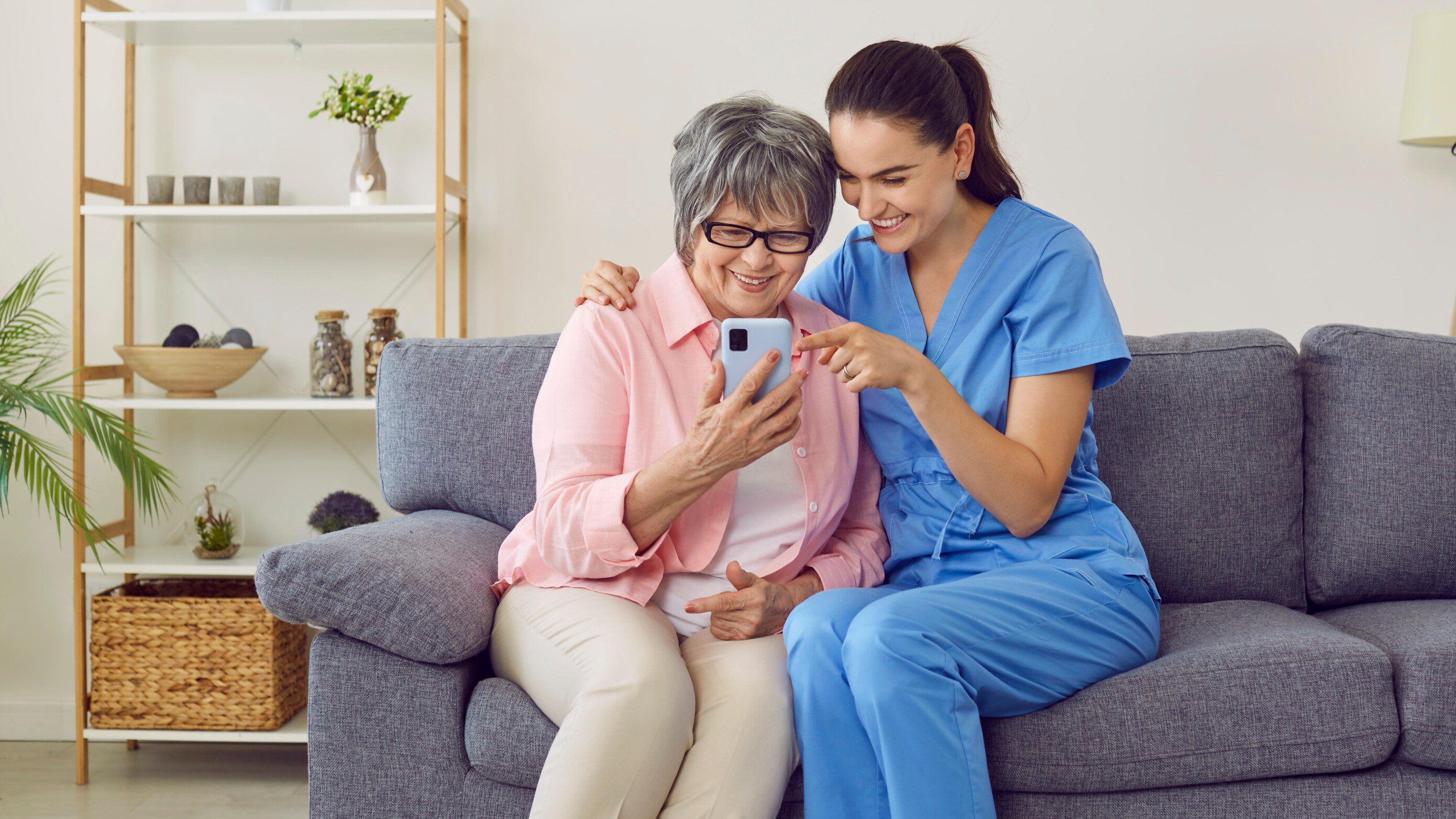Technology has become an important part of care. From overcoming language barriers to increasing overall efficiency, modern tools are empowering caregivers and improving the quality of care for seniors. Here’s a closer look at how technology is changing the face of caregiving.
Overcoming the language barrier
Communication is key in caregiving. Many caregivers work abroad and provide assistance to seniors who speak a different language. Translation apps and devices have a huge impact. They provide real-time translations, allowing caregivers to better understand the needs of their clients and provide better quality assistance.
For those willing to invest time in learning, language learning apps offer structured lessons. These apps, often accessible from smartphones or tablets, help caregivers quickly learn key phrases and vocabulary. Carers who overcome the language barrier gain confidence and build stronger relationships with the people they care for.
Easy medication management
Technology helps caregivers manage medications more efficiently. Apps and digital pill organizers send reminders to ensure medications are taken on time. Some even track medication adherence, giving caregivers a clear view of whether seniors are following prescribed regimens.
For those with multiple prescriptions, smart pill dispensers can sort and dispense medication at the right time. These tools reduce caregiver stress and reduce the risk of errors.
Health monitoring using wearable devices
Wearable technologies have taken healthcare to a new level. Devices such as smart watches or fitness trackers monitor heart rate, blood pressure and sleep patterns. Caregivers can use this data to spot potential health problems early and take action.
Some wearable devices even send alerts to caregivers or family members in the event of a fall or irregular heart rhythm. These features provide peace of mind for everyone.
Digital platforms for remote care
Video calling apps and telemedicine platforms are invaluable, especially when caregivers need expert advice or regular check-ins with family members. With just a smartphone or computer, caregivers can consult with doctors or therapists without the need to travel.
Digital platforms also allow caregivers to stay in touch with the senior’s family. Regular video updates create a sense of trust and ensure that families stay informed about their loved one’s condition.
Automated equipment for the home
Smart home devices make caregiving easier. Voice-controlled assistants, such as Alexa or Google Home, can remind seniors of appointments or medications. Smart lights and thermostats provide a comfortable and safe environment without the need for constant manual adjustments.
Robotic vacuum cleaners and other automated tools reduce the physical burden on caregivers and allow them to focus on providing personal care.
GPS tracking for safety
Safety comes first in caregiving. GPS trackers, which are often included in smartwatches, help caregivers monitor the location of seniors, especially those with dementia. If a senior gets lost, the caregiver can quickly locate them using a smartphone app. This technology ensures that caregivers can act quickly in an emergency, reducing the risks associated with wandering.
Atena makes nursing easier
Atena understands the challenges caregivers face. That’s why we offer tools and training to help caregivers make the most of these technologies. Whether you’re overcoming language barriers or exploring wearables, Atena supports you every step of the way.
Join Atena today and discover how modern tools for caregivers can transform your career. With us, you’re never alone in providing the best care possible.







